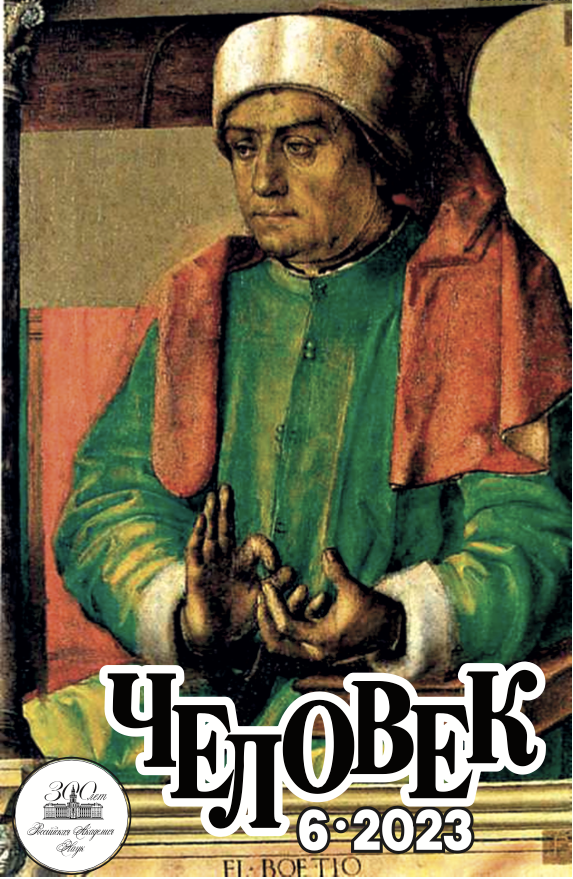The Virtue Ethics Anthropological Turn: Reactualization of Aristotle's Ethics in the Second Half of the 20th Century
Keywords:
ethics, morality, virtue, communication, anthropological turn, virtue ethics, discourse ethics, Aristotle, Anscombe, Foote, McIntyre, Nussbaum, HabermasAbstract
The article examines the specifics of the virtue ethics as an anthropological turn in the moral philosophy of the 20th century based on Aristotle's ethics ideas. The article sets a goal to show the specificity of borrowing these ideas determined the virtue ethics thematic development direction in conceptualizing the moral assessment of human activity, but it also became the cause of the main conceptual difficulty (problematization of human nature), it has not been overcome. The article provides an analytical review of the main works of the most significant representatives of the virtue ethics, reconstructs the approaches developed in the works to the conceptualization of moral evaluation of human activity and establishes the role of Aristotle's ideas in the approaches. It is shown the appeal to Aristotle's philosophy primarily occurs when developing a method for determining the moral content of an action in a specific situation, where the application of a universal rule should be supplemented by many conditions of this situation, as well as when trying to return the motive and personal qualities to the description of the conditions. The latter also entails the conceptualization of personal qualities as a moral state of a person, correlated with his development (in possibility — by nature, in reality — in interaction with other people). It is concluded that the virtue ethics borrowed Aristotle's ideas in fragments and without a deep analysis of his philosophy. As a result, the problem of conceptualizing human nature was not solved, which would allow us to come to moral assessments of an act without appeal to a transcendental legislator or abstraction of duty. The achievements of ethics of virtue show: 1) it is impossible to selectively return individual concepts from the past to moral philosophy, but a comprehensive description of the phenomenon of morality in human activity is necessary, 2) the return of old concepts also brings back old problems of former moral theories (in the case of virtue, this is the problem of making a choice and forming a disposition).






